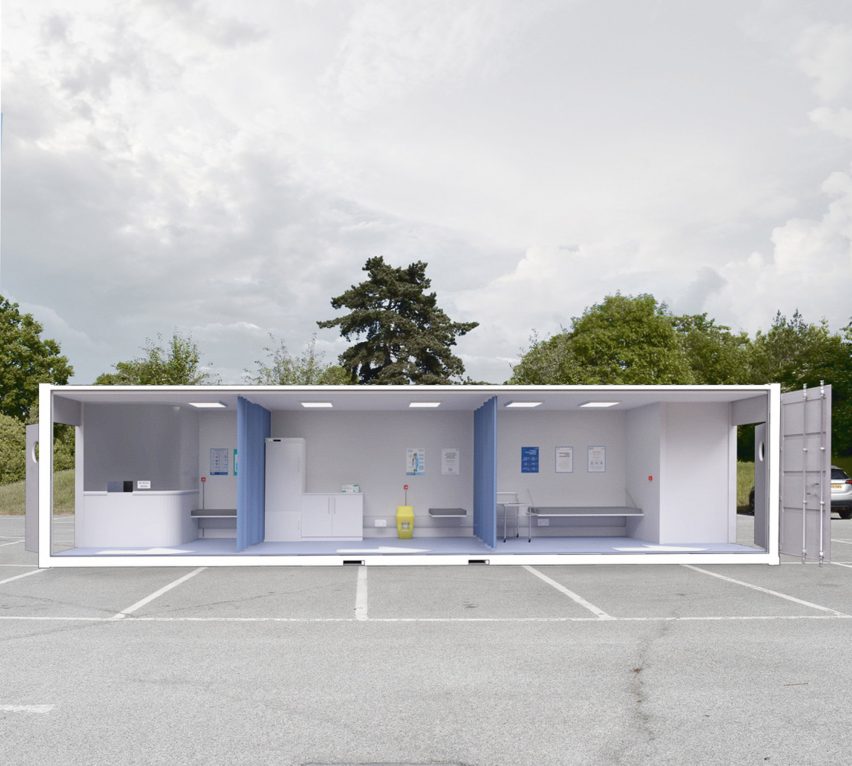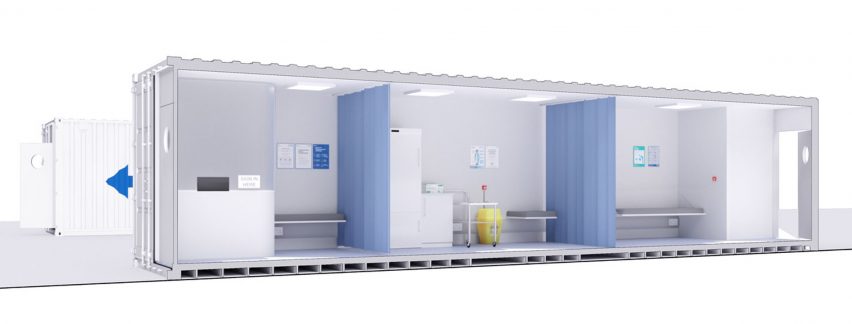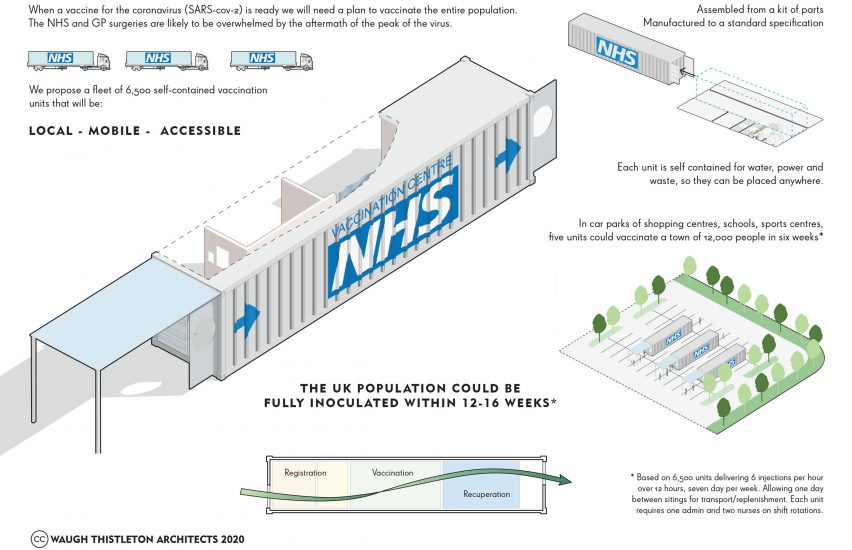
Mobile vaccination centres in shipping containers could immunise 60 million people in four months, says Waugh Thistleton Architects
Waugh Thistleton Architects has proposed creating 6,500 mobile vaccination centres in shipping containers that could travel around the UK and immunise the entire population against coronavirus in 16 weeks.
The units would allow the UK's stretched National Health Service (NHS) to roll out a mass immunisation programme should a vaccine for Covid-19 be found, the architect believes.

"Over 12 weeks, these shipping containers could be mobilised throughout the country in car parks and other public areas to vaccinate the entire population of the UK," said Andrew Waugh of Waugh Thistleton Architects.
"The vaccination units can be delivered into the heart of villages and remote communities or in clusters spread through towns and cities, vaccinating the local population before moving on."
Units delivered by trucks
In the proposal, a fleet of mobile vaccination centres would be transported around the UK on trucks and be parked in open public spaces such as the car parks of shopping centres, schools and sports buildings.
Waugh Thistleton Architects has estimated that 60 million people in the UK could be vaccinated in 12 to 16 weeks, assuming each of the 6,500 units administered six injections per hour over 12 hours for seven days a week.
Two nurses and one administrator working on rotation would be needed per unit to hit the target, which allows for one day of travel and replenishment between different locations.

Mobile centres would mean people would not need to travel to receive a vaccination while allowing existing public buildings to carry on as normal while relieving pressure on the health service.
"Our hospitals and GPs were already over capacity before the crisis, and it could take years for the NHS return to normal," said the architect.
Relieving pressure on public services
"We cannot use our schools and sports centres as vaccination centres as these will soon be needed to regain some semblance of normal life," the studio added.
"The logistics of disinfecting these spaces and preventing the spread of disease during the process would be far too complicated and would detract from the critical task at hand."

Each unit would be self-sufficient in water, power and waste disposal and would feature three distinct zones for registration, vaccination and recuperation.
The modules take advantage of the linear form of a standard 40 foot (12.2 metre) container, with patients entering at one end and exiting through the other.
Containers are "the perfect structure"
This one-way flow would minimise the risk of contamination. "The linear form of containers suits the through-put nature of the process," the architect said.
"Shipping containers are the perfect structure for this use," it added. "We have a stockpile of them in this country from our one-way trade with China, they are incredibly efficient, robust structures and designed for transportation."
Waugh Thistleton Architects is looking for industry partners to develop its idea for vaccination centres. "It is not a proprietary solution," it said.
"Our goal is to work with the very best people in the industry to get these manufactured and ready for deployment for when the vaccine arrives and to share our expertise and experience with other countries to make this a global solution."
Researchers around the world are rushing to develop a vaccine against coronavirus, although there are concerns that it could be months or years before an effective solution is found. Some fear that a vaccine may never be developed.
Renderings are by ImagePip.